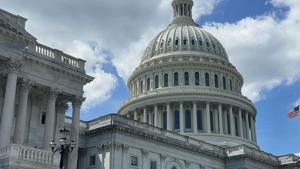
Experts call for probe after Microsoft left out China ties in Pentagon security plan
Microsoft is facing renewed calls for a congressional investigation after ProPublica revealed the company omitted key details about its use of China-based engineers in a Pentagon security plan.
ProPublica obtained a copy of Microsoft’s 2025 “System Security Plan” submitted to the Department of Defense. The plan describes the company’s “digital escort” system – U.S. personnel with security clearances supervising engineers – but neglects to mention that those “non-screened personnel” could be foreign engineers based in China.
The Department of Defense requires that those handling sensitive data be U.S. citizens or permanent residents. Critics say that allowing China-based engineers to perform technical work on U.S. government systems poses risks because Chinese law gives the state broad authority to demand data.
Microsoft told ProPublica that its escort process was disclosed and approved. However, Pentagon leaders have expressed shock after learning the details. Following the report, Microsoft stopped using China-based engineers for Defense Department systems.
Michael Lucci, CEO and founder of State Armor, said Microsoft’s behavior demands immediate action from Congress.
“Microsoft’s actions at the Pentagon – ranging from extreme carelessness to borderline treason – warrant a full and immediate investigation from Congress,” Lucci said. “If Microsoft is using China-based engineers to manage our nations most sensitive secrets and failing to disclose these facts to Defense Department officials, they are undermining national security and everything else they manage in the federal government must be scrutinized. We need a total and complete shutdown of all Microsoft entering United States government systems until our country’s representatives can figure out what is going on.”
Will Hild, executive director of Consumers’ Research, said Microsoft’s omission shows the government cannot trust the company.
“Microsoft’s deception reveals a disgusting combination of corporate arrogance and cold disregard for America’s national security,” Hild said. “Choosing to hire tech engineers based in China is shockingly dangerous enough; choosing to conceal such operations from the Defense Department should lead to an immediate review of every government contract with Microsoft, whether with the Department of Defense or elsewhere.
“Given China’s full spectrum warfare approach to rivaling U.S. hegemony, we cannot afford to have Chinese coders, or a company that would surreptitiously hire them, maintaining government systems,” he added. “As Microsoft shows us its true colors, consumers are right to feel betrayed and angry at a company that so evidently does not care one bit about their safety, values, or country. Consumers’ Research stands with them and will fight on behalf of all Americans to hold Microsoft accountable.”
Lawmakers, including U.S. Sen. Tom Cotton, R-Arkansas, have already said Congress should strengthen oversight of IT contractors. Lucci and Hild argue that the next step is clear: a full investigation of Microsoft’s Pentagon contracts.
Latest News Stories

Supreme Court to decide immigration asylum case

Illinois quick hits: Armed robbery charges after incident at Senate President’s office

Will County Committee Approves Rezoning, Denies Landfill Permit for Former Joliet Beach Club Site

Michigan school board passes controversial sex ed policies

Everyday Economics: Jobs data returns as government reopens

Supreme Court case could have major effect on 2026 midterms

Meeting Summary and Briefs: Will County Land Use & Development Committee for November 6, 2025

Committee Rejects Rezoning for Fencing Company in Joliet Township

County Sales Tax Revenues Strong, Cannabis Funds Dispersed to Community Programs

Meeting Summary and Briefs: New Lenox Village Board for November 10, 2025

Illinois sports wagers decline after implementation of new tax

Competing crypto plans create ‘narrow path’ for adoption

Congress used government funding bill to ‘erase’ $3.4 trillion in deficits

